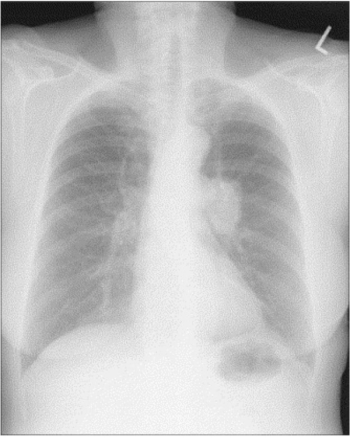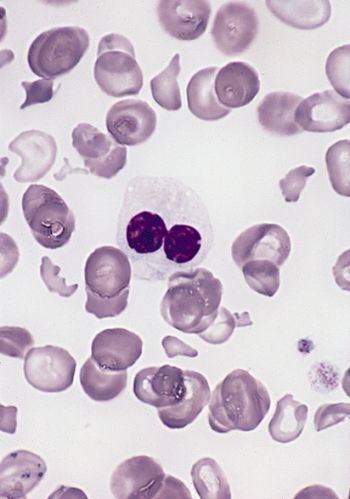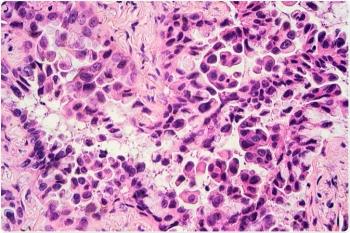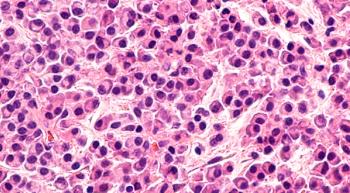
Information about gynecologic cancers found on TikTok may not be credible or reliable, according to findings from a recent study.
Ashley Chan, assistant editor for CURE®, has been with MJH Life Sciences since June 2023. She graduated with a B.A. in Communication Studies from Rowan University. Outside of work, Ashley enjoys spending time with family and friends, reading new novels by Asian American authors, and working on the manuscript of her New Adult novel.

Information about gynecologic cancers found on TikTok may not be credible or reliable, according to findings from a recent study.

Survivors of cervical cancer who engage in sexual activity or vaginal dilation after radiation could be at lower risk for developing long term side effects.

Using antidepressants after receiving a diagnosis of liver cancer may lower overall and cancer-specific mortality rates, according to recent research.

The overexpression of the gene, BRD4, may be the cause of chemotherapy resistance in patients with high-grade serous ovarian cancer, according to research.

Research found that skipping some counseling for genetic cancer testing did not increase distress, which may lead to beneficial remote options.

As drugs are getting “better and better,” breast surgery could be omitted, potentially offering improved results for patients with some invasive breast cancers.

Patients receiving Tecvayli for relapsed/refractory multiple myeloma had similar efficacy results and side effects, compared with another trial.

“Any family history of cancer could well be relevant” for individuals who may not realize they could be at risk for genetic cancer, according to an expert.

Higher health care costs may be related to the stages of melanoma, especially because of the increasing prices of treatments, according to an expert.

The notion of ‘time toxicity’ causes patients with stage 4 melanoma to have less available time in their everyday lives because of appointments and treatments.

Treatment combination of Lutathera and Sandostatin improved outcomes for patients with gastroenteropancreatic neuroendocrine tumors.

Tecentriq plus carboplatin and pemetrexed may improve efficacy in patients with NSCLC with untreated brain metastases, according to results of a phase 2 trial.

Treatment of Opdivo and Stivarga plus chemotherapy improves survival in patients with advanced esophageal adenocarcinoma and certain esophageal and stomach cancers.

Padcev plus Keytruda may improve survival outcomes for some patients with advanced urothelial cancer, according to preliminary data.

The first patients in a phase 1/2 trial have received a combination of HPN328, an immunotherapy, and Tecentriq for small cell lung cancer.

Mohs micrographic surgery offered better survival outcomes for patients with early-stage Merkel cell carcinoma, compared with wide local excision.

After a stem cell donor saved the life of a patient with a rare leukemia, the two finally had a “very emotional” meeting this past spring in New York.

Tedopi, a novel lung cancer vaccine, demonstrated improved survival and safety profile, according to preliminary findings from a phase 3 trial.

The treatment combination of Imfinzi plus radiotherapy is “promising” for certain patients with NSCLC, according to preliminary findings from a trial.

Reblozyl for anemia in patients with an MDS subset demonstrated positive effects, compared with previous treatments, according to an MDS expert.

Treatment with perioperative Imfinzi plus neoadjuvant chemotherapy may improve surgery outcomes for patients with resectable non-small cell lung cancer.

Tanning beds cause an increased risk of skin cancer among young people — especially those who have a family history of skin cancer.

Blenrep improves durability and provides meaningful response rates to patients with relapsed/refractory multiple myeloma, researchers found.

Using a device such as a Fitbit or Apple Watch can make a big difference for patients and doctors.

Researchers have found alternatives to opioid pills, which reduces the risk of misuse and addiction in patients undergoing pancreatic cancer surgery.

Vitamin D supplements have been shown to reduce the risk of relapse or death in patients with digestive tract cancer.

Tivdak improved overall survival in patients with recurrent or metastatic cervical cancer, compared with chemotherapy alone.

A new finding can help predict whether patients with advanced colorectal cancer can benefit from receiving immunotherapy.

Survivorship care plans provide survivors of cancer with a multitude of benefits, which in turn, may be empowering.

New preoperative and postoperative models can help identify those at high risk of breast cancer-related lymphedema following surgery.